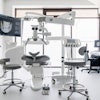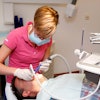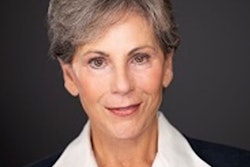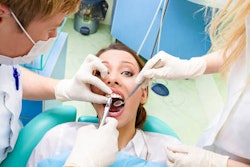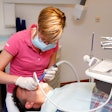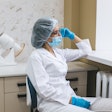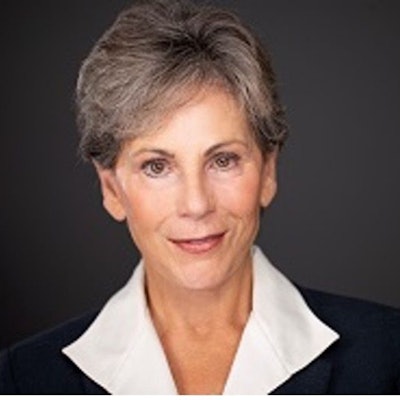
I would like to address some of the inaccuracies made by the Illinois State Dental Society (ISDS) lobbyist Dave Marsh in an October 20 Kaiser Health News (KHN) article on why the ISDS lobbied against legislation to allow public health dental hygienists to provide preventive services to in-need populations.
The measure would have permitted Illinois hygienists to administer preventive dental services in prisons, nursing homes, and mobile dental vans without an initial dental exam. In a memo to its members, the ISDS said they did not support the legislation for "patient safety reasons."
When asked by the KHN reporter about dental hygienists providing preventive dental care for residents of nursing homes, Marsh said, "I just don't feel anybody with a two-year associate's degree is medically qualified to correct your health. They're trained to clean teeth. They take a sharp little instrument and scrape your teeth. That's what they do. That's all they do."
He also added that there was a "scarcity of research" on the benefits of dental hygienists having more professional freedom.
Doing the homework
Had Marsh done his homework, he would have found a plethora of data that support dental hygienists expanding oral healthcare delivery to underserved Americans that began well more than 35 years ago.
In a 1986 California demonstration project, dental hygienists opened independent practices and provided prophylaxis, examinations, fluoride, and root planing. Researchers compared the seven independent dental hygiene practices to six dentist-owned practices and found that the hygienists provided the same or better quality of care than dentists in most areas, including infection control. In addition, the hygienists' offices kept more accurate medical records, more thoroughly recorded patients' periodontal status, and performed better at tartar removal. Hygienists also provided services to more Medicaid patients than the dentists.
Since that demonstration project, numerous articles have been published recommending states reduce overly restrictive dental hygiene practice acts and instead allow hygienists to work at the top of their license using their full skill set and education to meet the needs of the public.
However, research apparently only matters so much to ISDS lobbyists. What Marsh didn't say was that in 2015 when the Illinois General Assembly was first considering legislation to allow dental hygienists employed in public health settings to provide basic dental hygiene services for Medicaid and low-income patients prior to a dentist exam, the ISDS OK'd a provision in the bill for dental assistants to provide "coronal scaling" for low-income patients up to 12 years of age.
Unlike Marsh's erroneous suggestions about the lack of research on the benefits of dental hygienists having more professional freedom, research data indicating patient benefits from supragingival scaling only is nonexistent. Although supragingival scaling is part of a complete prophylaxis, it does not replace it, nor does it increase access to care for underserved population groups -- which the now-defunct Illinois dental hygiene legislation would have done.
Real-world impact
For many dental hygiene associations working to increase access to preventive dental hygiene services for the underserved, it is not unusual for state dental associations to use their political clout to kill a bill by using the deep pockets of their political action committee (PAC). These committees leverage state legislators, who all too often put their own interests ahead of the public.
Although the ADA agrees that too many Americans get inadequate dental care, when it comes to limiting competition -- even perceived competition by dental hygienists who want to help the underserved -- dental PACs are the ones who pull the strings with legislators and state dental boards.
In July 2017 article titled "The Unexpected Political Power of Dentists," the Washington Post cited dental lobbies as "a political force so unified, so relentless and so thoroughly woven into American communities that its clout rivals that of the gun lobby."
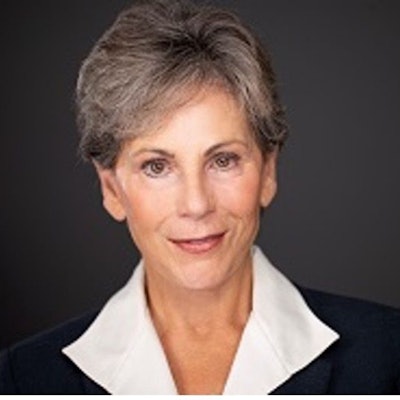 Suzanne Newkirk, RDH.
Suzanne Newkirk, RDH.The power of dental lobbies goes on full display when states contend with changing practice laws to increase access to dental care for the approximately 60 million Americans living in dental deserts. Throughout rural America, there are simply not enough dentists to serve the needs of the public living in low-income areas, and as a result, emergency room visits for preventable oral conditions cost taxpayers, hospitals, and the government about $2 billion annually.
In light of this reality, Marsh's quip about the education of hygienists disqualifying them from public service seems dim and heedless. Yes, dental hygienists have a two-year degree -- just like registered nurses (RNs) with an associate's degree. Illinois Dental Hygienists' Association President Sherri Foran, RDH, pointed out the irony.
"Does this mean that RNs are also unqualified to care for the elderly? Of course not! This is just another clear example of how the ISDS continues to battle licensed dental hygienists to suppress their ability to work to their highest scope," Foran stated. "Illinois dentists claim they can't afford to provide care for citizens who have state funded dental insurance, are uninsured, or poor. Yet they do not want dental hygienists to care for them either. And who suffers? The most vulnerable citizens of Illinois."
For years, dental hygienists have advocated at the state and national levels to fill a critical need that most licensed dentists are unwilling to address: providing basic preventive and therapeutic dental hygiene services for America's underserved. The very services they are already licensed and educated to provide.
It's time for state political and professional leaders, such as members of the ISDS and Illinois state legislators, to step up to the plate and make decisions based on what is in the best interests of the public they serve instead of themselves.
Suzanne Newkirk received her dental hygiene degree from the University of Alaska, Anchorage, in 1981. A recognized key opinion leader in periodontal endoscopy, she has published numerous articles and co-authored several dental textbook chapters on minimally invasive nonsurgical periodontal therapy with use of the dental endoscope.
Newkirk is the national and international dental endoscopy instructor for Zest Dental Solutions and is a professional speaker. You can visit her website at www.perioscopyprofessionals.com. She can be contacted at [email protected].
The comments and observations expressed herein do not necessarily reflect the opinions of DrBicuspid.com, nor should they be construed as an endorsement or admonishment of any particular idea, vendor, or organization.
